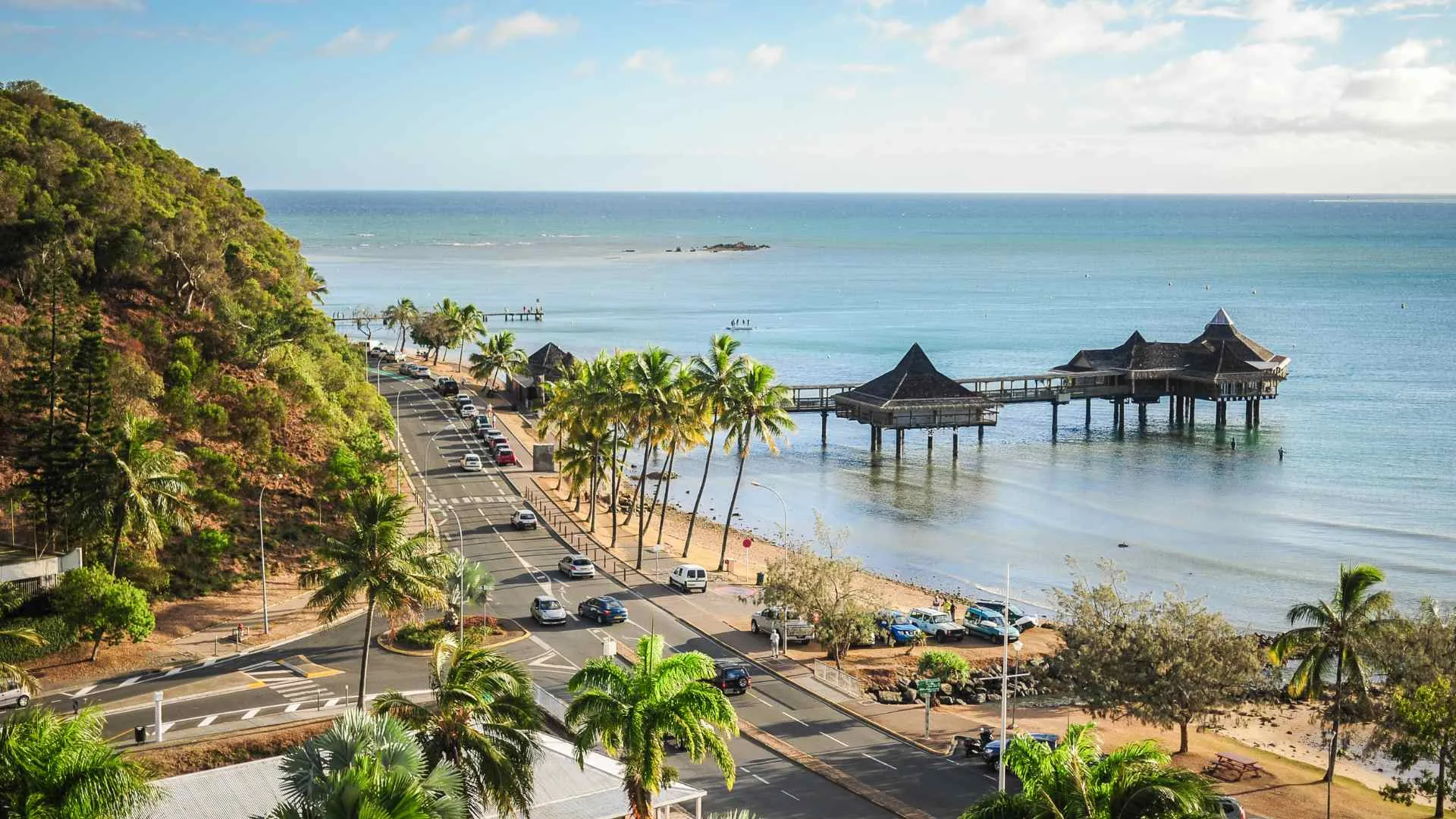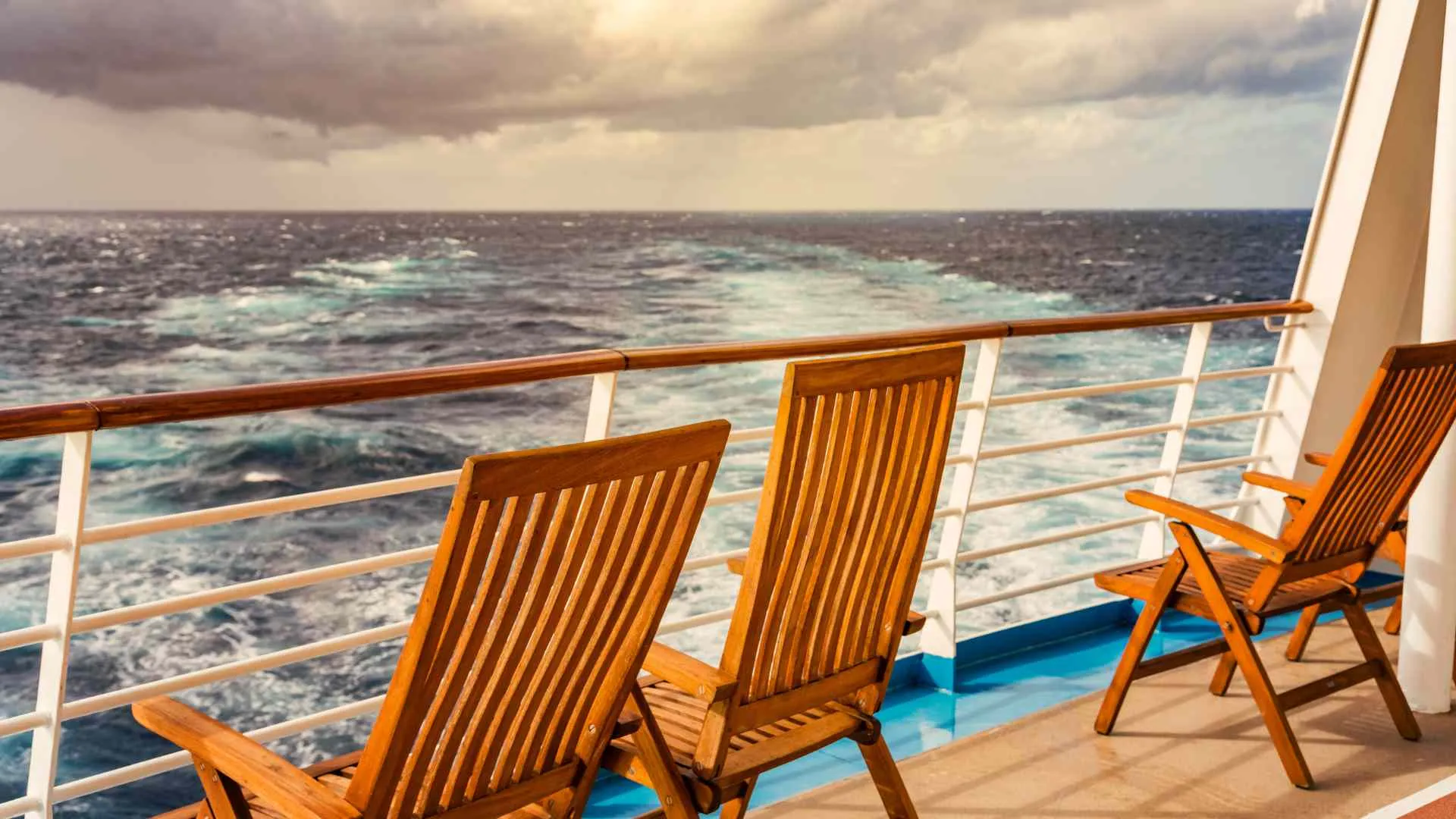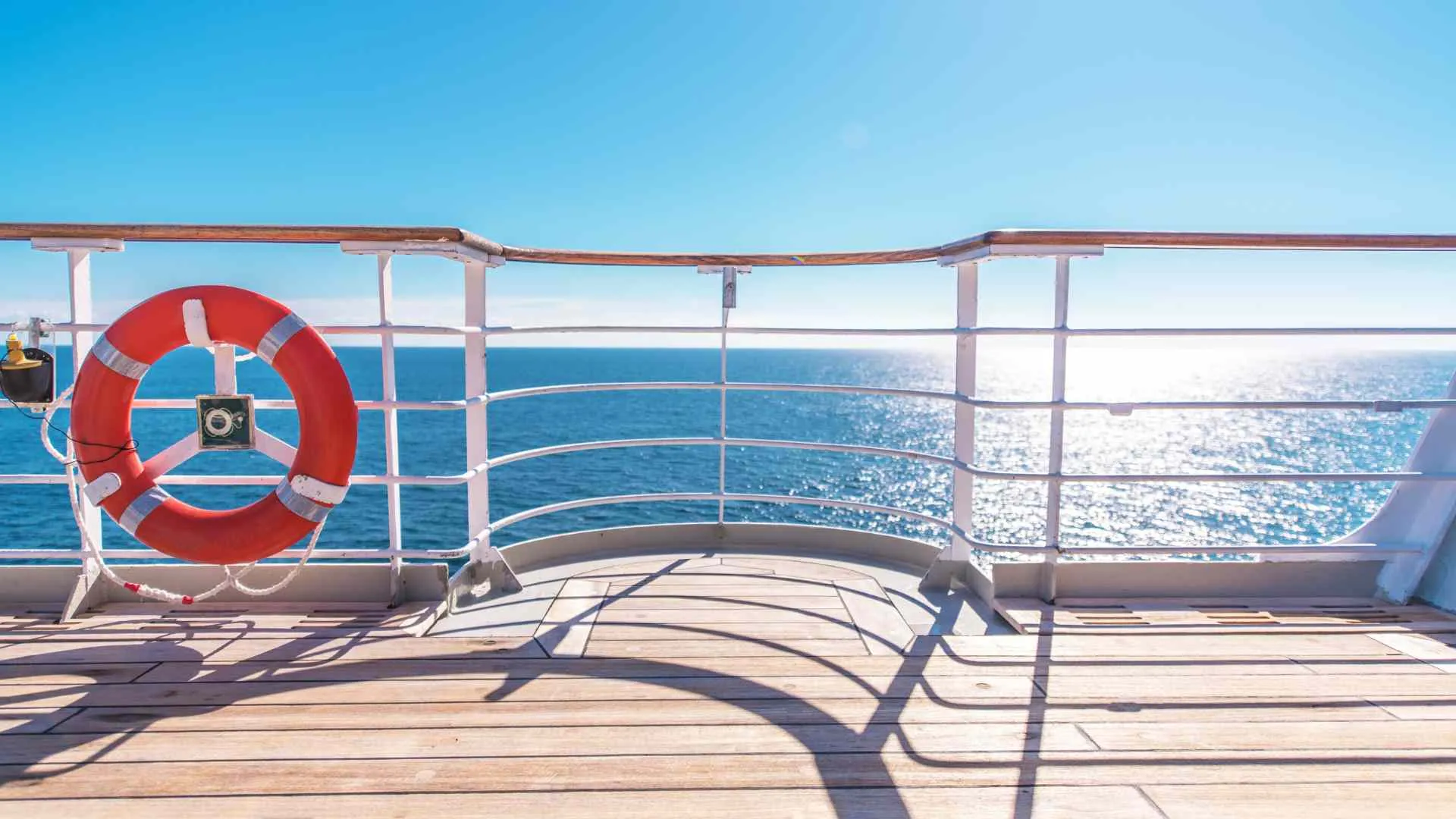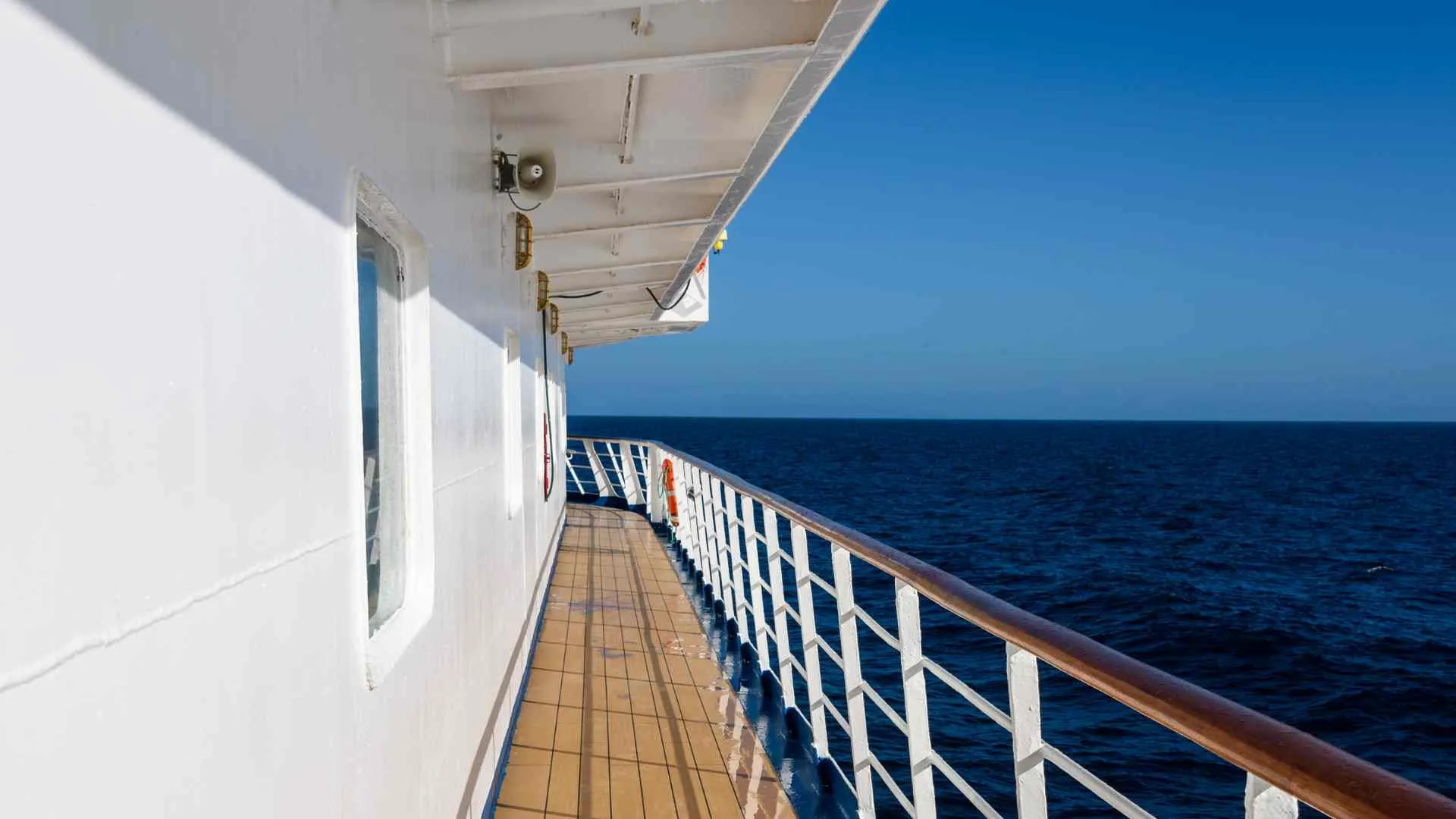Embark on an unparalleled educational adventure with “Semester at Sea”! This guide offers an insightful journey into this unique program, blending academic rigor with global exploration.
Designed for college students craving transformative experiences, we’ll navigate everything from preparation to life on the high seas. Get ready to set sail on a voyage of discovery that extends far beyond the classroom!
Introduction to Semester at Sea
Overview of the Program
Semester at Sea (SAS) is an extraordinary program that offers students a unique blend of academic and experiential learning. It revolves around a study-abroad experience on a ship, traversing various countries and continents.
Brief History and Mission
The program began in 1963, aiming to provide students with a global perspective on their studies. Its mission is to educate individuals with the global understanding necessary to address the challenges of our interdependent world.
Unique Aspects Compared to Traditional Study Abroad
Unlike typical study abroad programs, SAS allows students to visit multiple countries in a single semester. This mobile campus offers a dynamic environment for learning, with the added adventure of life at sea and cultural immersion in each port.

Preparing for the Journey
Application Process: Steps and Tips
Understanding the Requirements
Embarking on Semester at Sea starts with a thorough understanding of the application requirements. Ensure you meet the academic eligibility criteria and gather necessary documents like transcripts and recommendation letters. Research deadlines well in advance to allow ample time for preparation.
Crafting a Standout Application
Your application should showcase your enthusiasm for global learning and adaptability to diverse environments. Highlight experiences that demonstrate your readiness for an immersive, multicultural experience.
A well-articulated personal statement can set your application apart, so focus on your motivations and what you hope to gain from the program.

Selecting Courses: Advice and Considerations
Aligning Courses with Academic Goals
Course selection is more than just fulfilling credits; it’s about enhancing your global perspective. Choose courses that complement your major while offering a new viewpoint influenced by the itinerary.
For instance, a course in marine biology becomes more impactful when coupled with visits to coastal ecosystems.
Balancing Course Load with Exploration
Consider the balance between coursework and exploration time. While academic rigor is important, the program’s unique value lies in experiential learning opportunities in different countries.
Select a mix of challenging courses and those that allow flexibility for travel and cultural immersion.

Financial Planning: Scholarships, Grants, and Budgeting Tips
Exploring Financial Aid Options
Investigate various financial aid options available through Semester at Sea and external sources. Scholarships can be merit-based, need-based, or destination-specific. Be proactive in applying for these opportunities to ease the financial burden.
Budgeting for the Semester
Develop a comprehensive budget that includes tuition, travel to the home port, visas, vaccinations, and personal expenses. Consider the cost of excursions and leisure activities in different ports. Being financially prepared ensures a more focused and enjoyable experience.
Health and Safety: Vaccinations, Insurance, and Wellness
Medical Preparations and Insurance
Ensure you have all necessary vaccinations and medications for the regions you’ll visit. Securing comprehensive travel insurance that covers medical emergencies is a must. Understand the medical facilities available on board and their limitations.
Mental and Physical Well-Being
Embarking on a long voyage can be mentally and physically demanding. Familiarize yourself with resources available on the ship for mental health and wellness. Regular exercise and staying connected with family and friends back home are key to maintaining a healthy state of mind.

Packing and Preparations
Essential Packing List: What to Bring and What to Leave
Packing for Semester at Sea involves careful consideration due to space limitations in cabins and the diverse climates you’ll encounter. Focus on versatile clothing that can be layered and is suitable for various weather conditions. Remember, storage space is limited, so prioritize essentials.
Must-Have Items
Your packing list should include comfortable walking shoes, a sturdy backpack for day trips, a formal outfit for special events on board, and appropriate attire for visiting religious sites in different countries.
Don’t forget essential toiletries, medications, and any specialized electronic devices like adapters and power converters.

Cultural Sensitivity: Dress Codes and Local Customs
Respecting Local Norms
Understanding and respecting the cultural norms of each destination is crucial. Research the dress codes and customs of the countries you’ll visit. Packing cruise clothes that are modest and culturally sensitive is important to ensure you don’t inadvertently offend local customs.
Adaptable Clothing Choices
Choose clothing that can be adapted to different cultural environments. Items like scarves and long-sleeved shirts can be versatile for varying cultural contexts, helping you blend in and show respect for local traditions.

Tech Tips: Electronics, Adapters, and Connectivity
Staying Connected
While the ship provides internet access, it’s often limited due to the nature of being at sea. Bring electronic devices that are essential, like a smartphone or a laptop for coursework. Remember, the internet may not always be reliable, especially when the ship is in remote areas.
Power and Adapters
Different countries have different types of power outlets, so a universal adapter is a must-have. Also, consider a portable charger or power bank for times when you’re exploring ashore and access to power is limited.

Life Aboard the Ship
Accommodations and Facilities: Living Quarters, Dining, and Recreation
Understanding Your Living Space
Life aboard the ship involves adjusting to smaller, shared living quarters. Cabins are typically designed for efficiency, often housing two to four students.
Each cabin usually includes beds, a desk, and storage space. Familiarize yourself with the layout and amenities to make the most of your space.
Dining and Social Spaces
The ship provides a communal dining hall where meals are served, offering a range of options catering to various dietary needs.
Social spaces like lounges, study areas, and outdoor decks are available for relaxation and interaction with fellow students.

Daily Life: Typical Day at Sea vs Port Days
Routine at Sea
A typical day at sea starts with classes or seminars. Afternoons might be filled with study sessions, workshops, or engaging in onboard activities. Evenings offer opportunities for social events, cultural activities, or simply enjoying the sunset over the ocean.
Experiencing Port Days
On port days, the focus shifts to exploration and field programs. These are opportunities to immerse yourself in the local culture, participate in educational excursions, or explore independently. The schedule is more flexible, allowing students to experience the destinations fully.
Community and Relationships: Making Friends and Networking
Building a Shipboard Community
One of the most rewarding aspects of Semester at Sea is the sense of community onboard.
With a diverse group of students, faculty, and staff from around the world, there are ample opportunities to make lasting friendships and professional connections.
Networking and Collaboration
Engage in networking opportunities with guest lecturers, faculty members, and fellow students. Collaborative projects and group studies also foster a sense of teamwork and camaraderie.

Coping with Homesickness
Being away from home for an extended period can lead to homesickness. It’s important to stay connected with loved ones through digital communication, yet also immerse yourself in the shipboard community and activities.
Managing Seasickness
Seasickness can be a challenge for some. It’s advisable to bring medication and utilize onboard resources like the medical clinic. Over time, most people adapt to the motion of the ship.
Embracing Personal Growth
Life aboard the ship is an opportunity for immense personal growth. Embrace the challenges, be open to new experiences, and reflect on your journey. This unique environment fosters independence, adaptability, and a deeper understanding of oneself and the world.

Academic Life at Sea
Coursework and Learning: Balancing Studies with Exploration
Structuring Your Academic Schedule
Academic life on Semester at Sea requires a balance between coursework and exploration. Classes are typically held during sea days, with a schedule that accommodates various course requirements. It’s important to manage your time effectively, ensuring you keep up with studies while also taking full advantage of the travel experiences.
Engaging in Dynamic Learning Environments
Courses on Semester at Sea are designed to take advantage of the traveling campus. Lectures often incorporate aspects of the destinations you’ll be visiting, making the learning experience dynamic and contextually rich. This approach allows for a deeper understanding of global issues and diverse perspectives.

Unique Learning Opportunities: Guest Lecturers and Workshops
Learning from Experts and Practitioners
A unique aspect of academic life at sea is the access to a rotating roster of guest lecturers and experts. These individuals bring specialized knowledge and real-world experiences, enhancing the academic curriculum. Participating in these lectures and workshops expands your understanding and provides insights into various fields and cultures.
Workshops and Hands-on Learning
Beyond traditional lectures, workshops offer practical, hands-on experiences. These can range from language classes, cultural workshops, to skills-based sessions, providing an interactive element to your education.
Field Programs: Maximizing Learning in Different Ports
Integrating Field Experiences with Classroom Learning
Field programs are an integral part of the Semester at Sea experience. These programs are carefully designed to complement your coursework, allowing you to apply classroom knowledge in real-world settings. Whether it’s a historical tour, a cultural event, or a service-learning project, these experiences deepen your academic understanding.
Choosing Field Programs
Select field programs that align with your academic and personal interests. These programs vary in length, focus, and level of activity, so consider your goals and what you wish to gain from each experience. Some programs may require pre-trip research or post-trip reflections as part of the coursework.

Exploring New Destinations
Port Highlights: Must-Visit Places in Each Country
Researching and Planning for Each Destination
Before arriving at each port, research the must-visit places and key attractions. Semester at Sea offers a diverse itinerary, so each destination provides a unique set of experiences.
From historical landmarks to natural wonders, plan to explore sites that enhance your understanding of each country’s culture and history.
Taking Advantage of Organized Excursions
Semester at Sea often organizes excursions that are tailored to maximize your experience in each port. These trips are designed to be educational and immersive, often guided by local experts. Participating in these excursions can provide a deeper insight into the local culture and history.

Cultural Immersion: Engaging with Local Communities
The Importance of Cultural Sensitivity
Engaging with local communities is a core part of the Semester at Sea experience. It’s important to approach these interactions with sensitivity and respect for local customs and traditions.
Understanding and adhering to cultural norms will enrich your interactions and lead to more meaningful experiences.
Opportunities for Immersion
Look for opportunities to immerse yourself in the local culture. This might include homestays, community service projects, or participating in local festivals and events. Such experiences provide a firsthand look at the daily life and culture of the places you visit.
Responsible Tourism: Sustainability and Ethical Practices
Minimizing Environmental Impact
As a traveler, it’s crucial to be conscious of your environmental footprint. Practice sustainable tourism by being mindful of resource usage, respecting wildlife and natural habitats, and supporting eco-friendly initiatives.
Ethical Considerations and Community Impact
Responsible tourism also involves considering the social and economic impact of your visit. Support local businesses and artisans, and be aware of the ethical implications of your activities. Avoid activities that exploit local communities or are harmful to the environment.

Safety and Emergency Procedures
Onboard Safety: Drills, Protocols, and Precautions
Familiarizing Yourself with Safety Procedures
Safety is paramount on Semester at Sea. Upon embarkation, familiarize yourself with the ship’s safety protocols and participate in mandatory safety drills. These drills, including lifeboat training and fire safety, are crucial for preparing you for any emergency.
Understanding the Role of the Crew
The ship’s crew is trained to handle various emergencies. It’s important to understand their roles and instructions during drills and actual emergencies. Trust in their expertise and follow their guidance promptly for your safety and that of others.
In-Port Safety: Tips for Exploring Safely
Being Aware in New Environments
When exploring ports, stay aware of your surroundings. Research the safety conditions of each destination prior to arrival, and always adhere to the advice given by Semester at Sea staff regarding areas to avoid.
Traveling in Groups
There’s safety in numbers. Whenever possible, explore in groups, especially in unfamiliar or crowded places. Keep a copy of emergency contact numbers and the ship’s local agent details with you at all times.

Emergency Contacts and Resources
Keeping Important Contacts Handy
Ensure you have a list of emergency contacts, including the ship’s emergency number, local embassies, and consulates for the countries you’ll visit. This information is vital in case of any personal emergencies or unexpected situations.
Accessing Medical Help
Be aware of the medical facilities available on the ship and understand the process for seeking medical help. In case of a medical emergency in port, know how to contact local medical services and the protocol for getting assistance.
Returning Home
Transitioning Back: Dealing with Reverse Culture Shock
Understanding Reverse Culture Shock
Returning home after an extensive time at sea can be as challenging as the initial adjustment to shipboard life. Reverse culture shock might occur as you reintegrate into your home environment and daily routines. Recognize that it’s normal to feel disoriented or nostalgic.
Coping Strategies
Maintain connections with fellow Semester at Sea participants to share experiences and support each other. Slowly reintegrate into your home life, allowing yourself time to adjust. Continue to engage in activities that remind you of your travels, like cooking international dishes or joining cultural clubs.

Leveraging the Experience: Adding Value to Your Resume
Highlighting Your Global Perspective
Semester at Sea offers unique experiences that can significantly enhance your resume. Emphasize skills such as adaptability, cultural sensitivity, and global awareness. These are highly valued in today’s interconnected world and can set you apart in job applications or academic pursuits.
Networking Post-Voyage
Stay in touch with the network you’ve built during your voyage. These connections can provide valuable career advice, references, or even job opportunities. Don’t underestimate the power of this diverse and global network.
Staying Connected: Alumni Networks and Opportunities
Joining the Semester at Sea Alumni Community
Becoming part of the Semester at Sea alumni community opens doors to a global network. Engage with local chapters, attend reunions, and participate in alumni events. These networks can be invaluable for personal and professional growth.
Continuous Learning and Engagement
Look for opportunities to stay involved with Semester at Sea, such as volunteering for future voyages, mentoring new students, or participating in alumni travel programs. Continuous engagement keeps the spirit of exploration and learning alive.

Conclusion
Final Thoughts and Encouragements
Reflecting on the Journey
As your Semester at Sea comes to a close, take time to reflect on your experiences and the myriad of ways you’ve grown. This journey has been more than just a travel experience; it’s been a transformative chapter in your educational and personal life.
Embracing the Change
You’re returning home with a new perspective, enriched understanding, and memories that will last a lifetime. Embrace the changes within yourself and use them to influence your future path. The world is vast, and you’ve just begun to explore its wonders.
Inspiring Quotes from Past Participants
Words to Live By
To conclude, here are some inspiring quotes from past Semester at Sea participants:
- “Semester at Sea didn’t just change my worldview; it revolutionized how I see myself in it.” – Alumni, Spring 2018
- “The journey of a thousand miles begins with a single step. SAS was that step into a larger world for me.” – Alumni, Fall 2019
- “I left with a suitcase, but returned with a heart full of experiences and a mind open to endless possibilities.” – Alumni, Spring 2020
This journey might have reached its port, but the lessons, friendships, and perspectives you’ve gained will navigate you through the rest of your life’s voyage. Keep the spirit of exploration alive and continue to seek new horizons, both within and outside yourself.
Frequently Asked Questions (FAQs) on Semester at Sea
General Questions
Q: What is Semester at Sea?
A: Semester at Sea (SAS) is a study-abroad program that takes place on a ship, allowing students to travel to multiple countries while completing academic courses.
Q: Who can apply for Semester at Sea?
A: Semester at Sea is open to undergraduate students from any accredited university or college. Applicants must meet certain academic and health requirements.
Academic and Courses
Q: What types of courses are offered on Semester at Sea?
A: A wide range of courses are offered, covering various disciplines such as global studies, marine biology, economics, and cultural studies. Courses are designed to integrate with the countries visited.
Q: Can I earn credits towards my degree?
A: Yes, credits earned on Semester at Sea are transferable to most home institutions. It’s important to discuss and plan this with your academic advisor before the voyage.
Financial and Scholarships
Q: How much does Semester at Sea cost?
A: The cost varies depending on the voyage and cabin selection. It typically includes tuition, room and board, and administrative fees. Additional costs include travel to the ship’s departure port, visas, and personal expenses.
Q: Are there scholarships available for Semester at Sea?
A: Yes, there are a variety of scholarships and financial aid options available based on merit, financial need, and other factors.
Health and Safety
Q: What medical facilities are available on board?
A: The ship is equipped with a basic medical clinic staffed by a licensed doctor and nurse. They can handle minor injuries and illnesses.
Q: How is safety managed on the ship?
A: Safety is a top priority. The ship undergoes regular safety drills, and the crew is trained in emergency procedures. Safety protocols are in place for both time at sea and in ports.
Life Onboard
Q: What are the living accommodations like?
A: Living accommodations are similar to small college dorm rooms, typically shared with one or more roommates. Rooms are equipped with beds, storage space, and a study area.
Q: Are meals provided on the ship?
A: Yes, meals are provided in the ship’s dining hall and are included in the program cost. The dining hall offers a variety of food options to cater to different dietary needs.
After the Voyage
Q: How can I stay connected with the Semester at Sea community after my voyage?
A: There are numerous ways to stay connected, including joining the Semester at Sea alumni network, attending reunions, and participating in post-voyage events.
Q: Can Semester at Sea experience help in my career?
A: Absolutely. The global perspective, adaptability, and cross-cultural experiences gained from Semester at Sea are highly valued in many career paths.
Additional Frequently Asked Questions (FAQs) on Semester at Sea
Preparation for the Voyage
Q: How should I prepare academically for Semester at Sea?
A: Familiarize yourself with the courses offered and how they align with your academic goals. It’s also beneficial to read up on the cultures and histories of the countries you will visit.
Q: What should I know about packing for the voyage?
A: Pack light and focus on essentials. Choose versatile clothing suitable for different climates and cultures. Remember to bring adaptors for electronics and any personal medications.
During the Voyage
Q: What kind of extracurricular activities are available on the ship?
A: A variety of activities are available, including clubs, sports, workshops, and cultural events. These activities are great for socializing and learning outside of the classroom.
Q: How do students stay connected with family and friends while at sea?
A: Internet access is available on the ship, though it may be limited. Students often use email, social media, and blogging to stay in touch. It’s also possible to make satellite phone calls in urgent situations.
Port Visits
Q: How much free time do students have during port visits?
A: Free time varies depending on the port and the field programs chosen. Generally, students have a mix of structured educational tours and free time for independent exploration.
Q: Are students allowed to travel independently in the countries visited?
A: Yes, students can explore independently during their free time in ports. However, they must adhere to the ship’s schedule and safety guidelines and are encouraged to travel in groups.
Post-Voyage
Q: What support is available for students after the voyage to adjust back to life at home?
A: Semester at Sea offers resources and advice for dealing with reverse culture shock. Alumni networks and post-voyage meetups can also provide support and help students readjust.
Q: Can I participate in Semester at Sea again as an alumni?
A: Yes, there are opportunities for alumni to participate in future voyages, either in a student capacity if they’re still completing their degree, or in volunteer or staff roles.
